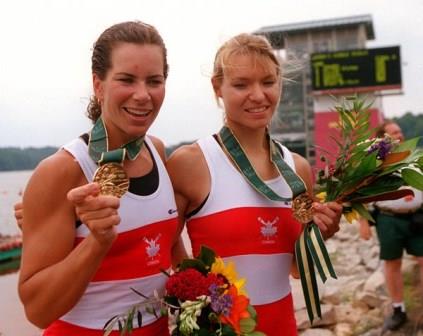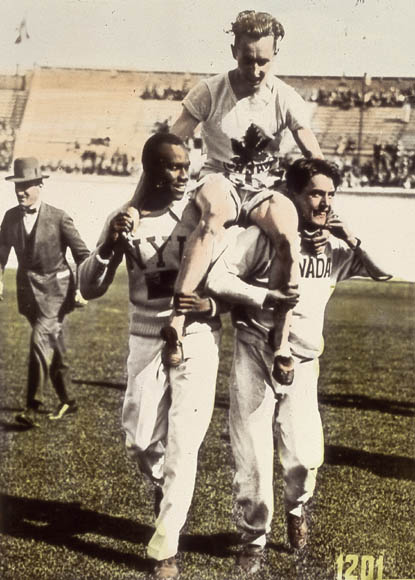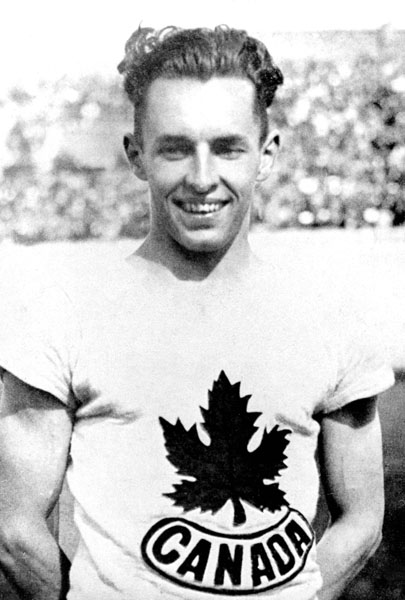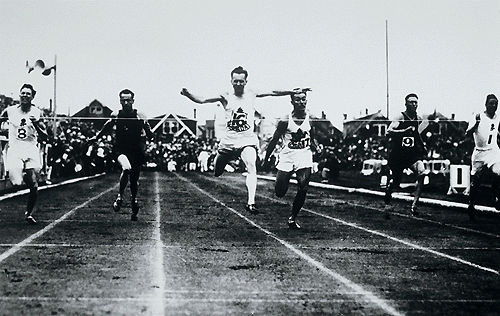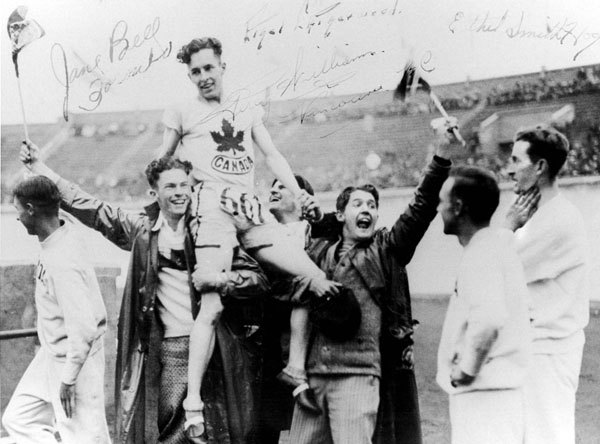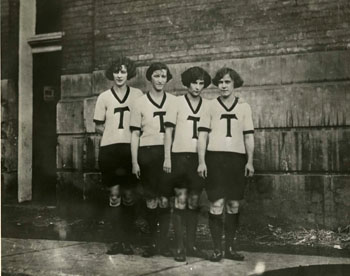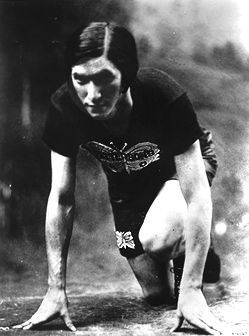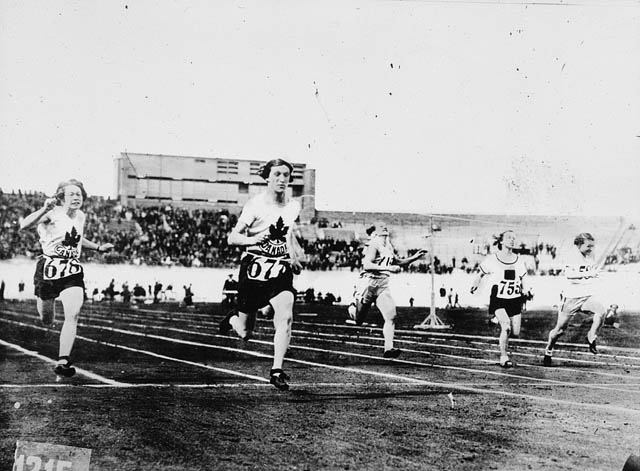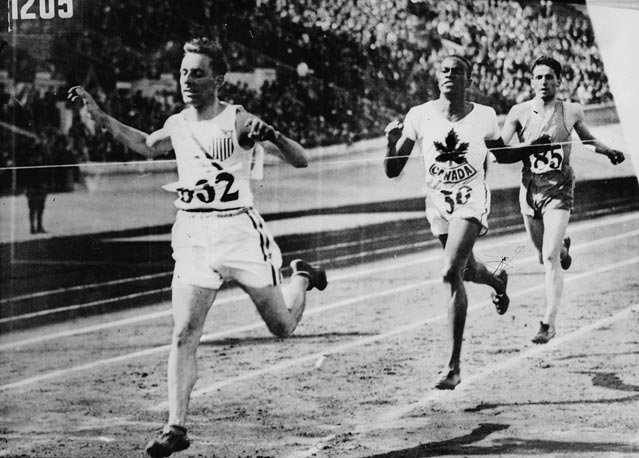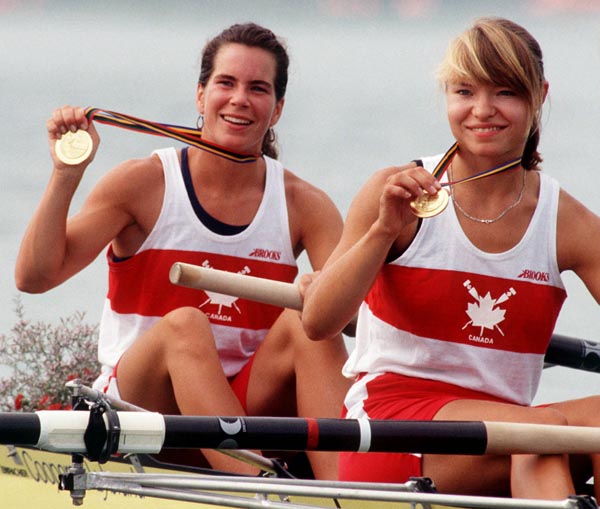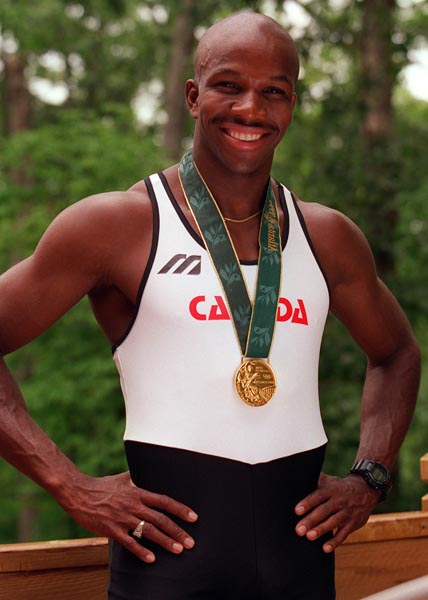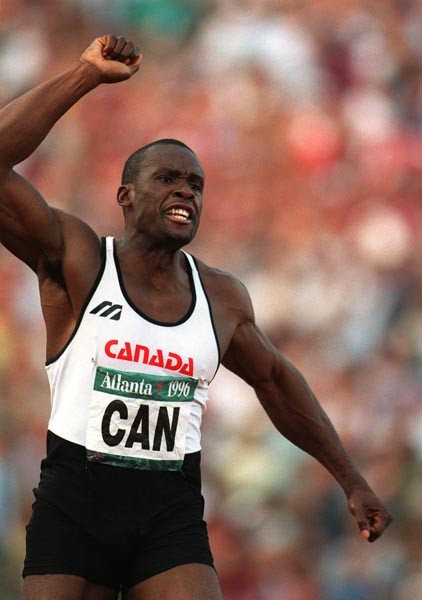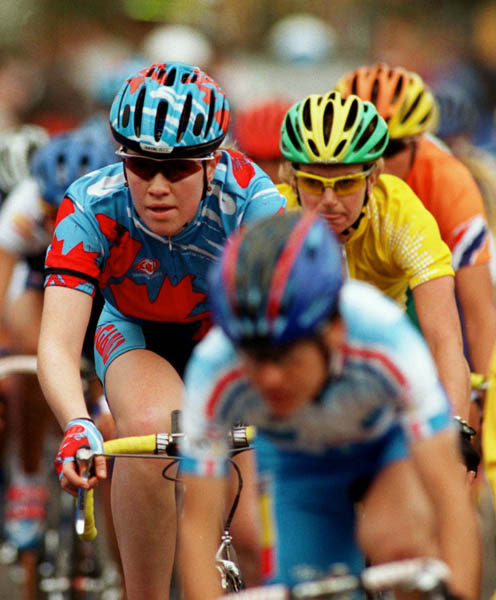Canadian athletes have been participating in the Olympic Summer Games since 1900, when George Orton won gold in the 2500 m steeplechase. Since then, Canadians have competed and medalled in many disciplines, including track and field, cycling, equestrian, kayaking, rowing, swimming and wrestling. While all Olympians can be proud of their accomplishments, a number stand above the rest — quite literally. The following Summer Olympians have stood on the podium multiple times, their victories cheered by fans across the country and around the world.
While not all Canadians are familiar with such legendary athletes as Percy Williams, Phil Edwards or the Matchless Six, many remember the thrill of watching Donovan Bailey and the men’s relay team upset the Americans to win gold in 1996, or cheering on rowers Marnie McBean and Kathleen Heddle at the Games in Barcelona and Atlanta. The indomitable Clara Hughes proved she was a master of the bicycle as well as the speed skating track, while Victor Davis and Carolyn Waldo dominated their opposition in the pool. At the 2016 Games in Rio, four-time medallist Adam van Koeverden will again compete in kayaking at what will be his fourth Olympic Games. All impressive, all inspiring — these Olympians were, and are, among the best in the world.
The Early Games: Orton, Kerr and Williams
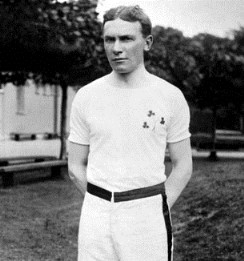
In the early 20th century, a number of Canadian track athletes won multiple medals at the Olympic Games. George Orton, the first Canadian to win a medal at the Olympics, won the 2500 m steeplechase and placed third in the 400 m hurdles at the 1900 Games in Paris.
Canadian sprinters also did well at the early Olympic Games: at the 1908 Games in London, Irish-Canadian Robert Kerr took gold in the 200 m and bronze in the 100 m, while Percy Williams dominated the sprint events at the 1928 Games in Amsterdam, winning gold in both the 100 m and 200 m.
Matchless Six at the 1928 Olympics
Percy Williams wasn’t the only Canadian star at the 1928 Olympic Games in Amsterdam. This was the first time that women were allowed to compete in track and field at the Olympic Games, and the first time Canada sent a women’s team to the Olympics. Five events were open to women in track and field: the 100 m race, 800 m race, 4x100 m relay, high jump and discus.
The “Matchless Six” — Fanny Rosenfeld, Jean Thompson, Ethel Smith, Myrtle Cook, Ethel Catherwood and Jane Bell — would make their mark on the world stage; Rosenfeld and Smith won two medals each, including a gold medal as part of the relay team, while Catherwood took gold in the high jump.
Phil Edwards, the “Man of Bronze”
Nicknamed the “Man of Bronze,” middle-distance runner Phil Edwards won five bronze medals at three Olympic Games: in the 4x400 m relay (1928 and 1932), 800 m (1932 and 1936) and 1500 m (1932). He was the most decorated Canadian Olympian until 2002, when speed skater Marc Gagnon won his fifth medal, tying Edwards’s record.
In 1936, Edwards became the first winner of the Lou Marsh Trophy as top athlete in the country. The same year, he received the Lionel Conacher award as top male athlete. A graduate of McGill University medical school, and star of the university’s track team, Edwards later became a leading expert in tropical diseases.
Victor of the Pool
Olympic and world champion Victor Davis won four medals at the Olympic Summer Games. The immensely popular Davis was known for his flamboyance and his fiercely competitive approach to swimming: he was exuberant when he won and anguished when he lost.
At the 1984 Olympics in Los Angeles, Davis won a gold medal in the 200 m breaststroke (world record, time 2:13.34) and silver medals in the 100 m breaststroke and the 4x100 m medley relay. Davis closed out his competitive career at the 1988 Olympics in Seoul as part of Canada's silver-medal-winning 4x100 m medley relay team. The following year, he was tragically killed in a hit-and-run accident.
Where’s Waldo? On the Podium
At the 1988 Olympic Summer Games in Seoul, synchronized swimmer Carolyn Waldo became the first Canadian woman to win two gold medals at the same Games: in the solo event and in the duet with teammate Michele Cameron.
However, it wasn’t her first podium at the Games, as she had won silver in the solo event at the 1984 Olympic Games in Los Angeles. Waldo also swept the 1986 world championships in Madrid with three gold medals (in solo, duet and as part of the team event). She received the Bobbie Rosenfeld Award in both 1987 and 1988 as best female athlete. In 1988, Waldo also received the Lou Marsh Trophy as best athlete in the country.
Rowing Champions Kathleen Heddle and Marnie McBean
Rowers Kathleen Heddle and Marnie McBean are two of the most decorated Olympians in Canada, having won four medals (three gold and one bronze) in two Olympic Games. Heddle and McBean dominated their competition in the coxless pair at the 1992 Games in Barcelona, and again in the double sculls at the 1996 Games in Atlanta.
They were also part of the gold-medal-winning coxed eights team in Barcelona, and took home a bronze medal in the quadruple sculls in Atlanta. In the 1990s, Canada emerged as a dominant power in rowing, with victories in men’s and women’s events, including an emotional bronze-medal finish by injured sculler Silken Laumann.
Donovan Bailey and the Fab Five at the 1996 Olympics
Donovan Bailey's heroics were the highlight of the 1996 Olympic Games in Atlanta. He won the 100 m race in world record time (9.84 seconds) against a strong field and anchored the 4x100 m relay team that defeated the American favourites for the gold medal.
The two victories signalled the recovery of track and field in Canada, which had suffered in the wake of the 1980s doping scandal involving Ben Johnson and many of his teammates. Bailey, Bruny Surin, Robert Esmie, Glenroy Gilbert and Carlton Chambers (who, because of an injury, had yielded his place to Esmie) were inducted into Canada’s Sports Hall of Fame in 2008.
Clara’s Bronze Bicycle
You cannot mention multiple medallists without including Clara Hughes. Not only has this multi-talented athlete won six medals in total (an honour she shares with fellow speedskater Cindy Klassen), but two of those were won in cycling at the 1996 Olympics in Atlanta, Georgia — bronze in the time trial and in the most demanding of cycling events, the road race.
After failing to medal in cycling at the 2000 Summer Games, Hughes decided to turn her attention to speed skating, winning four medals at the Olympic Winter Games between 2002 and 2010. That year, at the age of 38, she announced her comeback to international cycling competition, later qualifying for the 2012 Summer Olympics in London where she participated in the time trial (5th) and the road race (32nd).
Adam van Koeverden, King of the Kayak
Adam van Koeverden, Canada’s most successful paddler, has won four Olympic medals at three Games. At the 2004 Olympic Summer Games in Athens, he won a bronze medal in the men's K-1 1000 m event, followed a day later by victory in the K-1 500 m. He was Canada's first double-medalist in the Summer Olympics since Donovan Bailey and Clara Hughes at Atlanta in 1996, and received the Lou Marsh Trophy in 2004 in recognition of his accomplishment.
At the 2008 Olympics in Beijing, Van Koeverden won silver in the K-1 1500 m event and at the 2012 Olympics in London, he took silver in the men's K-1 1000 m. In 2015, he won bronze in the K-1 1000 m at the Pan American Games in Toronto; in 2016, he qualified for the Rio Olympics, his fourth Summer Games.

 Share on Facebook
Share on Facebook Share on X
Share on X Share by Email
Share by Email Share on Google Classroom
Share on Google Classroom
